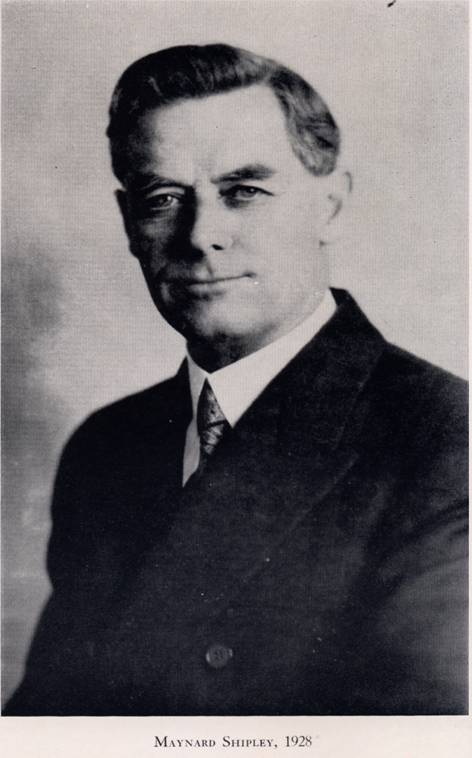 It seems like just yesterday, doesn’t it? But today, August 29, 2013, is the 89th anniversary of the Science League of America. The original Science League of America, of course, not the blog.
It seems like just yesterday, doesn’t it? But today, August 29, 2013, is the 89th anniversary of the Science League of America. The original Science League of America, of course, not the blog.
When Maynard Shipley was giving a talk on evolution in San Francisco on August 29, 1924, he asked those in the audience who were interested in forming a group to combat antievolution propaganda to remain after the talk. Practically the whole audience stayed, and they took up a collection to fund the nascent organization, accumulating the sum of $11. The Science League of America was incorporated in California in the following year.
Who was Shipley, anyhow? In the first few years of the 1920s, he was primarily known as a popular science writer and lecturer, specializing in astronomy and evolution. He wrote several pamphlets published in Haldeman-Julius’s famous Little Blue Books series. But (as Josh Rosenau observed in his inaugural post on the Science League of America blog) he was a man of many talents and of many careers.
A self-taught musician, he gave music lessons to pay his way through Stanford University. He abandoned his education there, though: “This university life,” he told his advisor, “interferes too much with my studies.” What was he studying? Well, criminology, for example—he published a series of articles on the death penalty, and there was even talk about offering him a chair at Northwestern University’s school of law.
But he was also active as a socialist speaker, writer, editor, and organizer, moving in the same circles as Jack London and Mother Jones (both of whom he quarreled with) and serving as assistant campaign manager for Eugene Debs when he was running for Congress in 1916. (Debs also ran for president—five times, once from jail.) He even engaged in a formal debate on socialism versus anarchism, with Emma Goldman as his opponent.
After the Science League of America was founded, it—mainly in the person of Shipley himself—fought antievolution legislation, helped teachers discharged for teaching evolution, argued for evolution in articles and letters to the editor in magazines and newspapers, lectured and arranged for lectures all over the country, and basically served as “a vast clearing-house and information bureau.” Plus ça change, plus c’est la même chose!
The league was not involved in the Scopes trial—but most of the pro-evolution expert witnesses, as well as Clarence Darrow, were members. Shipley wrote a number of widely circulated articles about the Scopes trial, as well as a number of books about the creationism/evolution controversy, including The War on Modern Science (1927) and The Key to Evolution (1929). He was also a major contributor to a popular science journal of the day, Evolution.
Yet the Science League of America’s reach and influence were limited. Part of the reason was that Shipley was kept at arm’s distance by the scientific establishment, which was leery both of his lack of scientific credentials and of his disreputable past as a socialist agitator. And then there was the Depression, leading to a decline in donations. (One stalwart in Nevada sent a pair of rabbits in lieu of dues. Please don’t donate any livestock to NCSE.)
But there was also a lack of creationist activity for the league to combat. Although Scopes’s conviction was overturned, the damage to science education was already done. Evolution was in abeyance in textbooks after the 1920s. And no antievolution legislation was introduced during the ‘30s, ‘40s, and ‘50s. By 1932, as Shipley’s biographer (his third wife Miriam De Ford) writes, “[t]here was little work to be done for the Science League.”
The Science League of America thus disbanded “until the need for and possibility of action [may] arise again”; Shipley himself died in 1934. But in the words of the “Battle Hymn of the Republic,” his truth is marching on!

